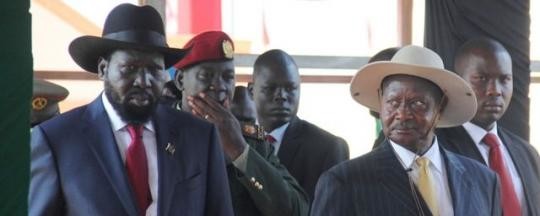The South Sudanese rebel group SPLM/A-IO has strongly objected to the inclusion of Uganda in a committee to study the report of the AU Commission of Inquiry, which the African Union Peace and Security Council has refused to release to the public for months following its completion.
SPLM-IO disclosed yesterday that the African Union Peace and Security Council failed to invite the movement to an “important meeting’ on the atrocities report.
After the meeting Voice of America reported that the AU gave the report to the South Sudanese government but did not release it to the public.
According to a statement from SPLM-IO today, the AU decided to form a seven member panel consisting of Algeria, Chad, Ethiopia, Nigeria, South Africa, Tanzania and Uganda to study the report and make recommendations on it to the AU Summit in early August.
“The SPLM/SPLA strongly objects to the inclusion of Uganda in this Committee. Uganda has been a party to the conflict since the beginning (15th December 2013),” said Riek Machar in a statement dated Friday and released today.
“Uganda has its army (UPDF) and Air Force active in the war on the side of the Juba regime. It has participated in committing genocide, war crimes and has used internationally prohibited ‘cluster bombs’ against civilians in South Sudan.”
The rebel leader called on the international community to investigate the role of Uganda in the South Sudan conflict.
A leaked draft version of the African Union Inquiry report obtained by Radio Tamazuj in March 2015 said that the South Sudanese capital was ‘ethnically cleansed‘ in December 2013. The leaked African Union document reported that a “killing spree” took place in Juba from 16-18 December that left alive few Nuer besides those who fled to UN compounds.
Because the final version of the report has not been made available to the public, it is presently clear whether these conclusions of the draft document were included in the final report or instead removed at a later stage of editing.




